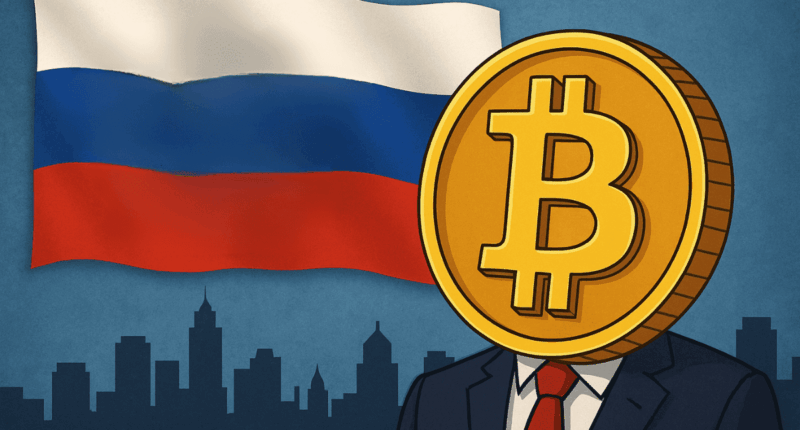Russian financial institutions have begun launching cryptocurrency investment products following new guidance from the country’s central bank. The Bank of Russia officially authorized banks to offer a range of crypto-based financial instruments to accredited investors, marking a significant step toward formalizing the digital asset market within the country’s regulated financial system.
On May 28, the Bank of Russia announced that licensed banks can now provide crypto-related offerings including derivatives, digital financial assets (DFAs), and securities linked to the price of cryptocurrencies. However, the central bank made it clear that these products must not involve the direct transfer or “actual delivery of cryptocurrencies.
This cautious approach aligns with Russia’s long-standing policy of restricting direct crypto investment while allowing controlled financial innovation. The bank emphasized that its stance on direct investment in digital currencies remains unchanged. The Bank of Russia still does not recommend financial institutions and their clients to invest directly in cryptocurrencies.
The announcement was accompanied by fresh data from the central bank’s financial stability report, revealing a sharp 51% rise in crypto asset inflows during Q1 2025. Russian residents reportedly funneled 7.3 trillion rubles (approximately $81.5 billion) into digital assets, underlining the sector’s growing relevance in the national financial ecosystem.
Responding swiftly to the regulatory greenlight, T-Bank (formerly known as Tinkoff Bank) became one of the first major Russian banks to roll out crypto investment products. On May 29, T-Bank introduced new DFAs tied to the value of Bitcoin (BTC $108,692), exclusively available to accredited investors. The tool allows you to invest in cryptocurrency in rubles through a familiar application safely and within the legal framework of the Russian Federation, without opening an account on a crypto exchange and difficulties with protecting your wallet.
Despite the regulatory progress, the Bank of Russia continues to discourage direct crypto investment. However, it hinted at potential changes ahead, noting that the government is in ongoing discussions about launching an experimental legal regime. This pilot program would allow select investors to engage in direct trading of cryptocurrencies like Bitcoin under supervised conditions.
The Bank of Russia also reported that Russian users currently hold around 827 billion rubles ($9.2 billion) worth of crypto assets on centralized exchanges (CEXs). Bitcoin dominates these holdings with a 62% share, followed by Ether (22%), and stablecoins such as Tether (USDT) and USD Coin (USDC), which collectively account for 15.9%.





